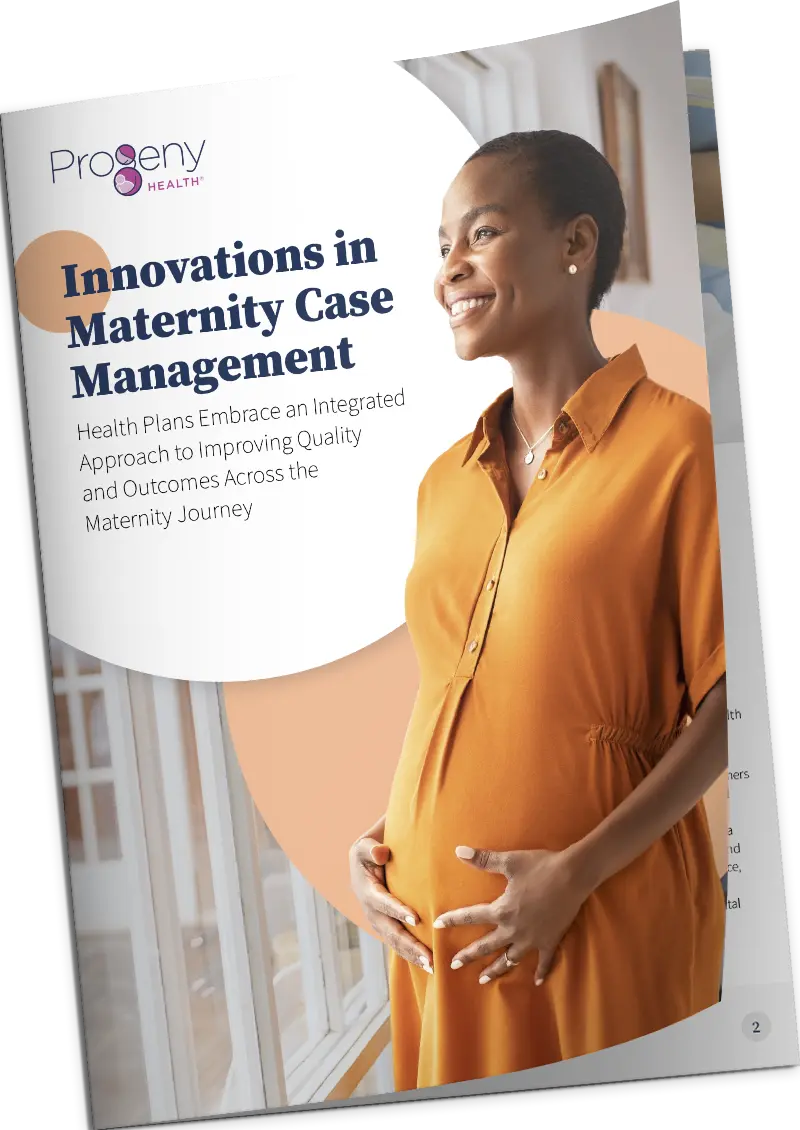ProgenyHealth Releases 2024 Key Trends and Insights Report on Maternal & Infant Health
Report identifies what 5 emerging trends in maternal and infant health mean for the year ahead
Plymouth Meeting, PA, January 18, 2024 – ProgenyHealth, LLC, a recognized national leader in Maternity and NICU Care Management, today announced the release of its 2024 key trends and insights report, “A Troubling Reality, a Hopeful Future.” The highly anticipated annual report identifies critical areas within maternal and infant health to watch in the year ahead, for health plans, hospitals, and healthcare providers.
In recent years, it has been nearly impossible to ignore the maternal and infant health crisis that is affecting the United States. Maternal mortality has been steadily rising, doubling between 1999 and 2019. In fact, the United States has the highest maternal death rate among the world’s wealthiest nations. Perhaps even worse, according to the Centers for Disease Control and Prevention, it is estimated that as many as 80% of these pregnancy-related deaths are preventable.
“As we look back on 2023, and look forward to the year ahead, two seemingly paradoxical realities are becoming clear — our country’s maternal and infant health is in a state of crisis, and yet the future holds tremendous hope for continued meaningful improvement,” said Susan Torroella, MBA, CEO, ProgenyHealth. “With every step forward toward true health equity, the United States can move closer to a future in which pregnancy and the birth experience allow parents to feel empowered, and not imperiled.”
In this climate of rapid change, ProgenyHealth continues to explore and report on major trends impacting the maternal and infant health landscape – and what rising risks mean for patients, providers, and payers.
Key findings and predictions of the 2024 trends report include:
Stronger Health Plan Interventions. Payers are expanding efforts to improve maternal and infant health outcomes and equity. Payers and providers are especially focused on the powerful potential of removing barriers to healthcare—prenatal healthcare in particular. Here’s one major reason why: when pregnant individuals don’t receive prenatal care, their infants are more likely to die during birth or in the postpartum period.
A Promising Shift in Healthcare Research. Unfortunately, research chronically lags for women’s health issues. Historically, most funding dollars have been directed toward conditions that affect both sexes, or solely men. However, this documented gap in medical research is poised to shift in coming years, particularly as it relates to maternal and infant health.
Bettering Maternal and Infant Care through AI and Machine Learning. There are numerous applications for artificial intelligence and machine learning throughout the phases of preconception, pregnancy, delivery and postnatal periods, many of which are gaining widespread use among providers. It is estimated that providers who use AI in their maternal care practices, can identify 70% of at-risk pregnant people during their first trimester.
The Rise of Virtual Prenatal and Postpartum Healthcare. As millions of parents attempt to navigate a lack of access to pre- and post-natal care, digital solutions are helping to bridge the gap. While some prenatal appointments must be conducted in person, a great deal of the routine monitoring required during pregnancy can be done at home and self-reported to providers. Telehealth also creates the opportunity for countless new parents to consult with lactation experts, report postpartum mental health symptoms sooner than they may have otherwise, and visit with specialists (such as genetic counselors) to whom they might not have had access.
New Definitions of Risk. Healthcare providers have long used the same criteria in defining a “high-risk” pregnancy—but new developments are changing those parameters. Health risk assessments are an important tool for clinical teams and case managers to identify factors that can turn a pregnancy from typical to tragic. Today, new and more nuanced definitions of risk are emerging. As more attention is directed to the ways in which social determinants of health (SDoH) impact pregnancy, new pieces of the puzzle will emerge in the year ahead.
“Since our company’s founding more than 20 years ago, our board-certified physicians, nurses, social workers and other team members have collaborated with health plans across the country to continually improve maternal and infant outcomes and save lives,” said Linda Genen, MD, MPH, Chief Medical Officer of ProgenyHealth. “Pregnant individuals deserve a future in which their health risks are managed, their circumstances are understood, and their voices are heard.”
To download the full key trends and insight report, or to learn more about what is being done to address the challenges women, infants and families will face in the year ahead, please visit the ProgenyHealth Knowledge Center or ProgenyHealth.com.
About ProgenyHealth
ProgenyHealth is a leading national, tech-enabled women’s healthcare company dedicated to Maternity and NICU Care Management. We serve women, infants, and families through the milestones of maternal care — from conception and pregnancy to postpartum and parenting, with special expertise in managing premature and complex births and resulting NICU admissions. Our industry-leading intelligent platform, Baby Trax™, integrates utilization management and case management, while driving payment validation & assurance activities based on clinical data. With over 20 years of experience, our board-certified physicians, nurses, social workers, and others collaborate with providers to improve health outcomes, enhance the member and provider experience, and reduce costs for all payer groups including commercial health plans, Medicaid payers and large employers. For more information, visit www.progenyhealth.com
Media Contact:
Linda Smith
VP, Marketing & Communications
lsmith@progenyhealth.com








 Prev
Prev